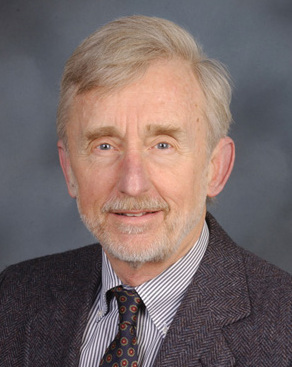 loading
loading
Light & VerityBusy bio prof named Graduate School dean Michael MarslandNew Graduate School dean Thomas D. Pollard worked at Johns Hopkins and the Salk Institute before coming to Yale in 2001. View full imageAs the holder of a Sterling professorship, Yale’s highest academic rank; a former president of the Salk Institute; the chair of the molecular, cellular, and developmental biology department; and coauthor of a leading cell biology textbook, Thomas D. Pollard doesn’t lack for credentials. But he doesn’t happen to have the one he’ll be asking President Richard Levin ’74PhD to confer on about 400 people each year as the new dean of the Graduate School: a PhD. Pollard, 68, came of age in a time when doctors commonly went into basic scientific research with an MD rather than a PhD. (He earned his bachelor’s at Pomona College and his medical degree at Harvard.) After starting out in internal medicine, he has pursued a career in research, working since his undergraduate days on the question of cell motility—how cells move within organisms. “When I became chair [of cell biology, from 1977 to 1996] at Johns Hopkins, only one of the basic science chairs was a PhD.” Pollard, who came to Yale from the Salk Institute in 2001, was appointed by Levin in May to succeed Jon Butler, a history professor who has been dean since 2004. Yale typically tries for a balance of scientists and humanists in its top administrative ranks, and since chemist Andrew Hamilton resigned as provost in 2008 to become vice chancellor of Oxford, there hasn’t been a physical scientist or biologist in any of the top chairs. (The Graduate School dean and the Yale College dean—currently art historian Mary Miller ’81PhD— together oversee the Faculty of Arts and Sciences.) Pollard has some science-related goals as he comes into the job. First, despite the economy, he wants to raise millions of dollars so that Yale can expand graduate school enrollment in the sciences. “We’re limited in the number of graduate students we can take in the sciences,” he explains. “We’d like to see the university pay the first year of tuition for science students, instead of NIH training grants. That would allow us to take in 50 percent more students in some departments.” Expanding enrollment in biology would be practicable partly because, Pollard says, “there is zero unemployment in the biological sciences.” (The situation is quite different for PhDs in the humanities, where the recession has battered an already shrinking job market.) Pollard also wants to “make Yale known for mentoring” its graduate students. He speaks with pride of his own department, where “we see each other all the time. It’s a social activity as opposed to an isolated scholar thing.” These and other plans will take some time from Pollard’s already busy schedule. Besides his research, which he hopes to continue, Pollard says he teaches as much as anyone in his department. He has also devoted time to professional organizations and to advocating strong federal funding for biomedical research. Pollard acknowledges something has to give, but he sounds reluctant. “I really want to hang on to my undergraduate cell bio course,” he says. “I’m really proud of how well it works.”
The comment period has expired.
|
|